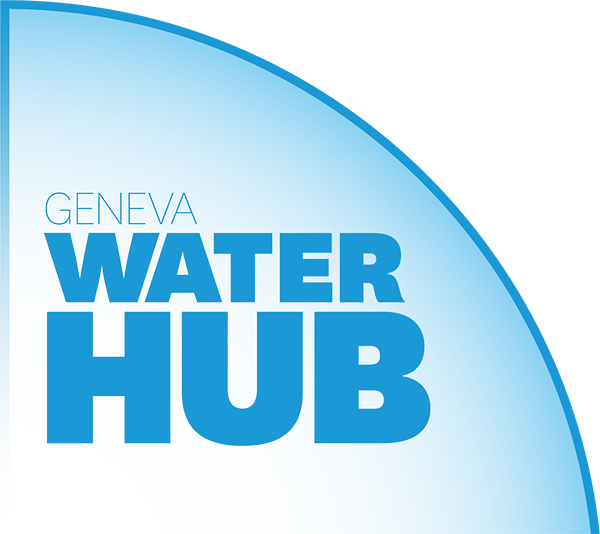Dernières activités des membres de la Plateforme sur la protection de l’eau en temps de conflit armé
Dernières publications des membres de la Plateforme pour le droit international de l'eau sur la protection de l’eau dans les conflits armés.
- Laurence Boisson de Chazournes, Ximena Fuentes, Danilo Türk, Mark Zeitoun, An appeal to stop the weaponization of water, The Geneva Observer, 16 novembre 2023.
- Mara Tignino et Tadesse Kebebew, How does the classification of armed conflict impact the protection of freshwater in Gaza? EJIL Talk, 20 novembre 2023.
- Mara Tignino and Tadesse Kebebew, Access to freshwater and accountability issues in the Israel-Hamas armed conflict, Opinio Juris, 27 décembre 2023.
Conférences 2024
Webinar - The protection of civilians in Gaza: environmental injustice and human rights abuse
The webinar will address the protection of civilians in the armed conflict in Gaza under human rights law. It is today commonly accepted that human rights law continues to apply during armed conflicts. International human rights law and international humanitarian law share the goal of preserving the dignity and humanity of all. Over the years, the General Assembly and the Human Rights Council have considered that, in armed conflicts, parties to an armed conflict have legally binding obligations concerning the rights of persons affected by an armed conflict. Moreover, while not many data are still available, the armed conflict in Gaza will also have severe long-term environmental impacts turning Gaza into a wasteland. Scholars from various disciplines are also engaged in studying the reverberating impacts that are not directly or immediately caused by a military attack, but they are a product of it. These impacts can affect livelihoods, health or food sectors. In the last years, there have been also legal developments on urban warfare and the protection of the environment in relation to armed conflict such as the 2022 International Law Commission’s Draft Principles on the Protection of the Environment in relation to Armed Conflicts (ILC PERAC Principles) and the 2022 Political Declaration on Strengthening the Protection of Civilians from the Humanitarian Consequences Arising from the Use of Explosive Weapons in Populated Areas (EWIPA Declaration).
The statements made by the United Nations and the International Committee of the Red Cross emphasize the catastrophic humanitarian situation in the Gaza and that both the Palestinian and Israeli civilian populations must be protected in accordance with international humanitarian law and human rights law. The panellists will explore the role of human rights mechanisms such as the United Nations Special Procedures. Such mechanisms are a voice of the rights of the victims of the armed conflict in Gaza. The United Nations play a role to ensure that the rights of both Parties in the armed conflict are protected. An emblematic example are the current deliberations by the International Court of Justice, the main judicial body of the United Nations, in the case concerning the Application of the Convention on the Prevention and Punishment of the Crime of Genocide in the Gaza Strip (South Africa v. Israel).
Programme de l’événement
Modération
Dr Mara Tignino, Senior Lecturer, Faculty of Law and Institute for Environmental Sciences, University of Geneva and Lead Legal Specialist, Geneva Water Hub
Intervenants
- Professor Pedro Arrojo-Agudo, United Nations Special Rapporteur on human rights to water and sanitation.
- Ms Marie Schellens, Project Officer, PAX.
- Dr. Raji Sourani, Palestinian Centre for Human Rights.
- Professor Mark Zeitoun, Director General of the Geneva Water Hub.
The event is organized in partnership with:


IHL Talk - The Weaponizing of Water in Contemporary Armed Conflicts
In conflict zones like Sudan, Syria and Gaza, access to water transforms into a critical survival matter. The alarming rise in the weaponization of water in contemporary armed conflicts is imposing a heavy toll on civilians, who bear the devastating consequences of this phenomenon. In such contexts, water and water-related installations not only become casualties but are also misused as means or method of warfare, profoundly impacting the livelihoods, well-being, and dignity of civilians. Besides, most modern water systems are digitized, making them more susceptible amid the growing trend of cyber-attacks targeting critical infrastructure.
>>>Registration at: https://bit.ly/3HCrtCY
Modération
Eugénie Duss, Research Fellow, Geneva Academy
Intervenants
- Mark Zeitoun, Director General, Geneva Water Hub and Professor of Water Diplomacy, Geneva Graduate Institute
- Monica Ramos, Global WASH Cluster Coordinator, United Nations Children’s Fund
- Abby Zeith, Legal Adviser, Arms and Conduct of Hostilities Unit, Legal Division, International Committee of the Red Cross
Villa Moynier
120B Rue de Lausanne, Geneva (access map)

